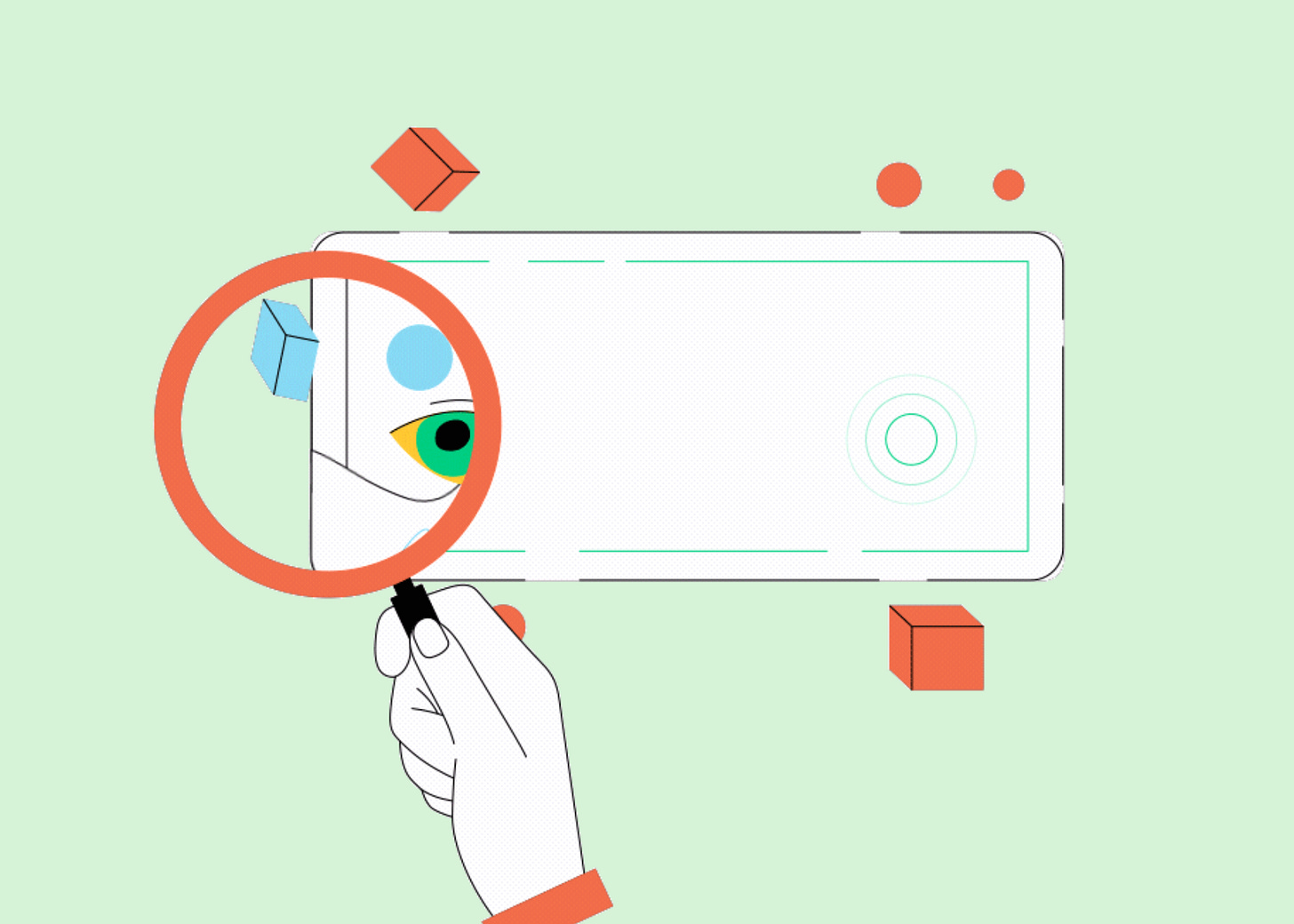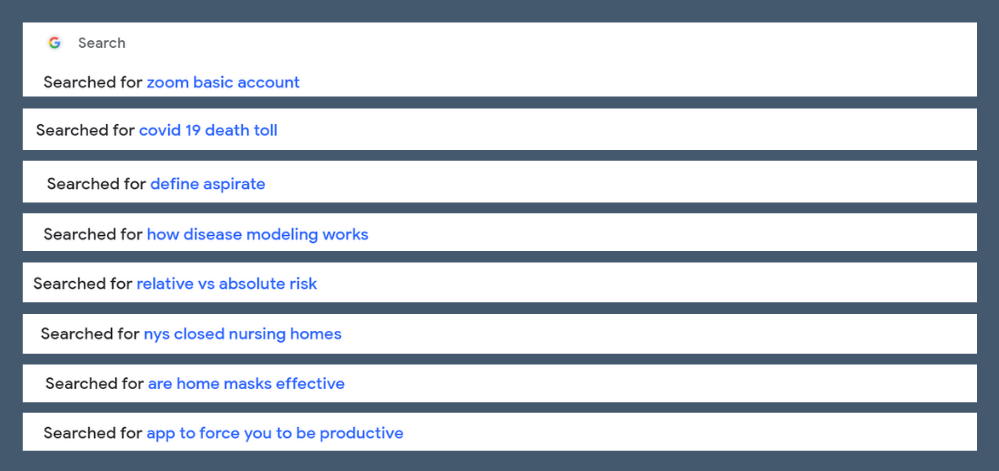The accidental poetry of Google search
Pull up your Google history and see what it tells you
I’m offline and out on maternity leave, but the internet … never rests! So while I’m away, Links is resurfacing some old gems that you may have missed. This one originally ran in March 2021, but to me, the observations around knowledge and internet search still feel really resonant … particularly amidst the past month’s flood of Covid anniversary content.
If you enjoy this post, please consider liking and/or sharing it. That support goes a long way toward keeping Links strong until I’m back full-time again. If you’ve considered a paid subscription, now’s also a great time to upgrade. You’ll get new subscriber-only posts, the first-ever Links zine and the intense personal — political?? — satisfaction of knowing your support let me take parental leave.
Thanks, as always, for reading and supporting this newsletter. Links will be back to its normal cadence in September. ❤️
Last week I spoke with Google’s data editor, Simon Rogers, for a story involving search data that should (!) publish Friday. The story is light and fun and concerns pandemic foods, so … we mostly talked about bread recipes.
At one point, however, Simon made an offhand comment about search data that struck me as sort of profound: Search trends don’t just reflect interest or zeitgeist, he said, but also gaps in people’s knowledge. We turn to Google with our dumbest, most mundane questions. (I Google synonyms and antonyms at least 10 times a day.) But sometimes the things we wish to know, and don’t know yet, are deeply ominous or shameful or just … heavy.
If you want to better understand what I’m talking about, try pulling up your Google Activity for the past 12 months. (Yes, I know — smarter/savvier people than I will have this feature turned off.) I spent some time this week going through my own searches, and essentially found the pandemic journal I forgot to keep. These ones, for instance, are all from March 2020.
Reading through these searches now, I’m reminded how much my experience and understanding of Covid-19 changed. And I’m *alarmed* by the stunning number of times I Googled “Covid-19 symptom” + whatever minor upset ailed me that day.
But there’s also a story here, right? You can see a narrative arc in these searches. Or at least I can, since I lived them.
April 2020
May 2020
Summer 2020
Fall & Winter 2020
Winter 2021
This post originally published on March 17, 2021 with the headline “The story in your searches.” If you’d like to continue your ride on this lil time machine, Links also shared stories on QAnon capture, voice memos and Cody Rigsby that week.
Thank you again for being here. Subscribe today to keep Links going strong — your shares and support while I’m out on leave make all the difference.









